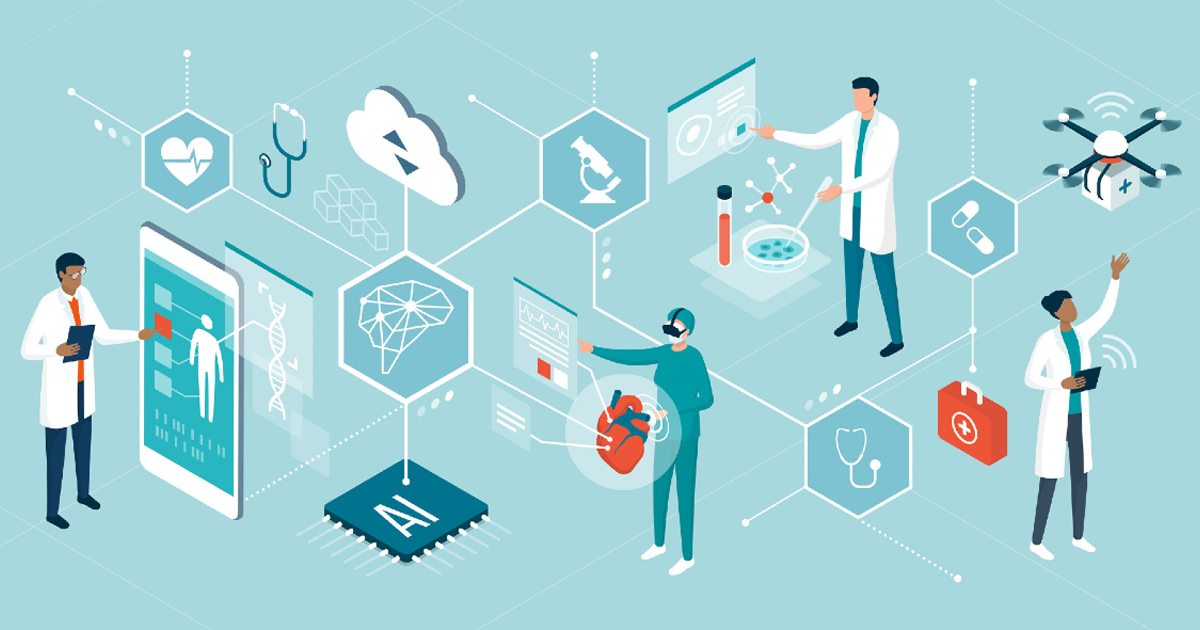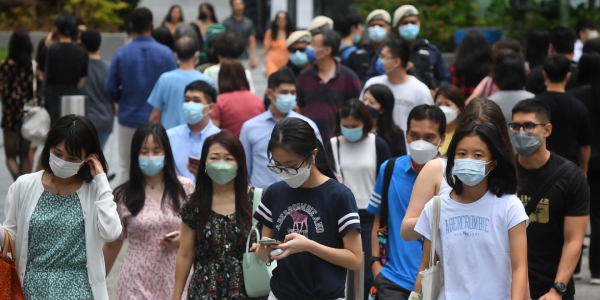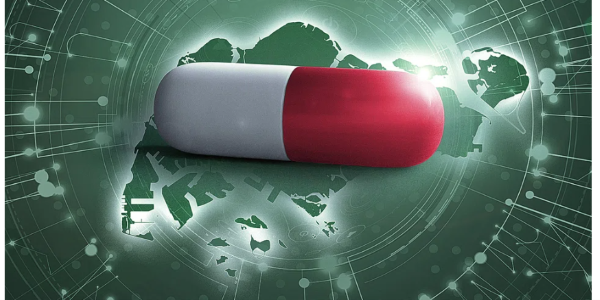A*STAR NEWS
MedTech Holds Dual Promise Of Healthcare And Economic Progress For Singapore
By Dr Mary Kan, Programme Director, MedTech Catapult, A*STAR and Mr John Eng, Vice President, Healthcare, EDB

For the Sanwa Group, a local company that specialises in precision plastic engineering, moving into the medical technology (MedTech) industry has been an exciting growth opportunity in the company's evolution. When global eye care giant Alcon first set up its manufacturing facility in Singapore in 2004, Sanwa struck up a partnership with them to supply blister shells – which are critical packaging to ensure contact lenses stay sterile and intact for consumers who use them on the go every day. Since then, the collaboration has gone from strength to strength.
Today, Sanwa Group supplies a wider range of blister shells to Alcon's plants—in Singapore and the region—to be used in Alcon's contact lenses packaging. It also worked with Alcon on a water-cooling system to reduce the average time needed for a manufacturing process of the blister shells, to meet Alcon's expanding capacity needs in the multinational firm's Singapore factory.
Economic opportunities for local businesses and workers
Sanwa's experience is just one example of how the fast-growing MedTech sector, which covers medical devices, digital health, life science tools and diagnostics, has opened opportunities for our workers and businesses – both multinational corporations (MNCs) based in Singapore and our local enterprises.
Singapore's MedTech sector has witnessed a surge in local health and biomedical startups, increasing from 59 in 2010 to over 300 in 2020. This dynamic growth has contributed to the sector's remarkable expansion, with its contribution to Singapore's manufacturing output rising from $3 billion in 2008 to $18.7 billion in 2022.
The MedTech boom has also created many employment opportunities, with the sector now providing over 16,000 high-tech, high-value jobs locally, allowing skilled workers to make significant contributions to the sector's growth and innovation. Joel Ng, a senior manager in R&D at multinational MedTech company BD, exemplifies this trend, having earned seven patents for his innovative work, underscoring the potential for local talent and home-grown expertise to shape the future of MedTech.
Beyond its impact on local businesses and workers, Singapore's MedTech sector has positioned the country as a global leader in capturing a significant share of the production of high-value MedTech products. For instance, American biotechnology company Illumina's manufacturing facility in Singapore supplies over 90% of its global demand for microarrays (microchip-sized genetic testing tools). It also produces more than 60% of DNA sequencing consumables, including reagents and kits. These products are exported from Singapore to medical research hubs all over the world to diagnose and study diseases.
While MedTech has been a boon for Singapore's economy, the sector will become increasingly important as the Republic moves to transform its healthcare system to address the needs of its rapidly ageing population.
Propelling preventive health and patient care
With about one in four Singaporeans expected to be aged 65 and older by 2030, Singapore's healthcare needs will rise significantly. MedTech can make a decisive difference in supporting preventive health to curb diseases' incidence and burden, and helping healthcare professionals to be more efficient and productive.
Consider the national Healthier SG initiative, which focuses on preventive health. One of its key prongs is to upgrade digital health apps and wearable devices so that people can be proactive in monitoring their health and taking steps to boost it. An example is the Healthy365 app, which provides personalised dietary advice after users log their meals, among other functions.
MedTech can also aid nurses and doctors to do the work of more people. For instance, Alexandra Hospital's smart wards have beds equipped with sensors and other devices to keep an eye on patients' vital signs, alert nurses if they try to get out of bed, and weigh them without moving them, reducing their fall risk.
With these smart beds and other technologies, a nurse can manage multiple wards via ‘virtual nursing', cutting the number of bedside nurses needed by about 30 per cent. This could be revolutionary in meeting Singapore's growing healthcare demand.
Others in the MedTech sector are forging ahead in rewarding careers that help patients improve their quality of life. One such example is Ms Aisyah Mazlan, a wireless systems integration engineer at WS Audiology, one of the world's leading hearing aids manufacturers. Aisyah is a key member at WS Audiology's R&D hub in Singapore. The hub is instrumental in helping patients manage hearing loss using cutting edge technologies while optimising cost of production to promote affordability.
Moving MedTech forward
With MedTech's potential to add to the economy, unlock more jobs and augment healthcare, Singapore is expanding the sector and creating a conducive environment for experimentation. For example, the new, $38 million MedTech Catapult national initiative hosted by A*STAR aims to accelerate the development of MedTech products in Singapore.
Part of MedTech Catapult's mandate is to identify novel high-value MedTech projects and empower the local MedTech ecosystem to translate intellectual property into commercial products. To achieve this, the initiative offers dedicated in-house product development and product management capabilities, supported by a team of multi-disciplinary engineers and experts in quality, regulatory, and clinical affairs.
Furthermore, Singapore's Research, Innovation and Enterprise plans are also driving advancements in key MedTech areas, such as innovative diagnostic tools and improved medical treatments. One example is the development of microfluidic devices that can accurately analyse small fluid samples, enabling quicker and more precise diagnostic tests at the patient's bedside or in clinics. Local start-up Sunbird Bio has already made strides in this area, developing a blood test that can detect proteins associated with Alzheimer's disease, potentially allowing for earlier detection and intervention.
Finally, the local MedTech sector's emphasis on sustainability, particularly through design aimed at sustainable disposal or reuse, dovetails with the nation's goal of reaching net zero emissions. This concerted effort underscores Singapore's commitment as it propels its MedTech sector forward, blending innovation with environmental stewardship. Such an approach not only bolsters healthcare and economic growth but also paves the way for a healthier, more sustainable future for everyone.
Was This Article Helpful ?
A*STAR celebrates International Women's Day

From groundbreaking discoveries to cutting-edge research, our researchers are empowering the next generation of female science, technology, engineering and mathematics (STEM) leaders.
Get inspired by our #WomeninSTEM




